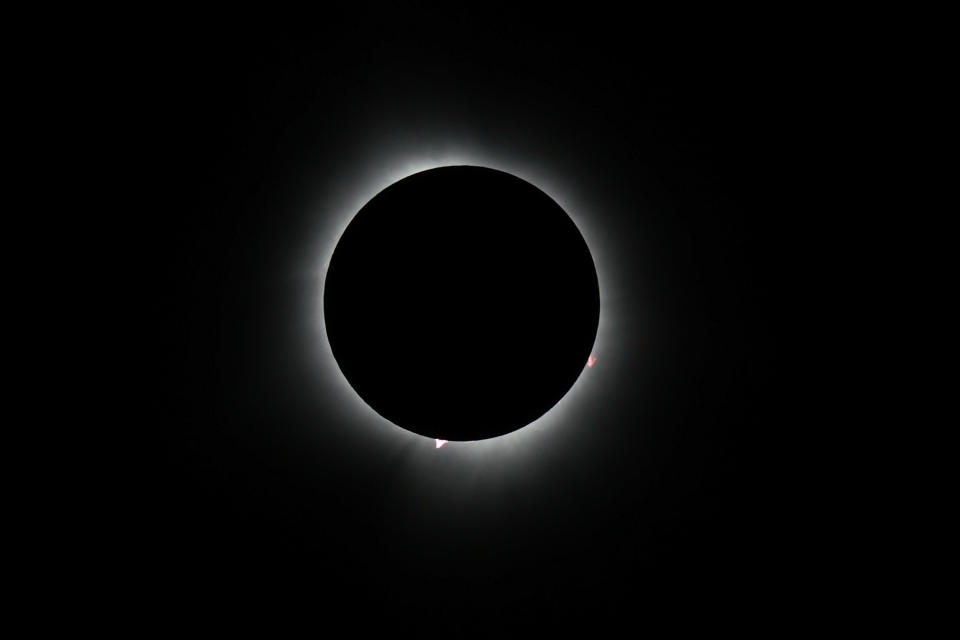The best photos and videos of the April 8 total solar eclipse over North America
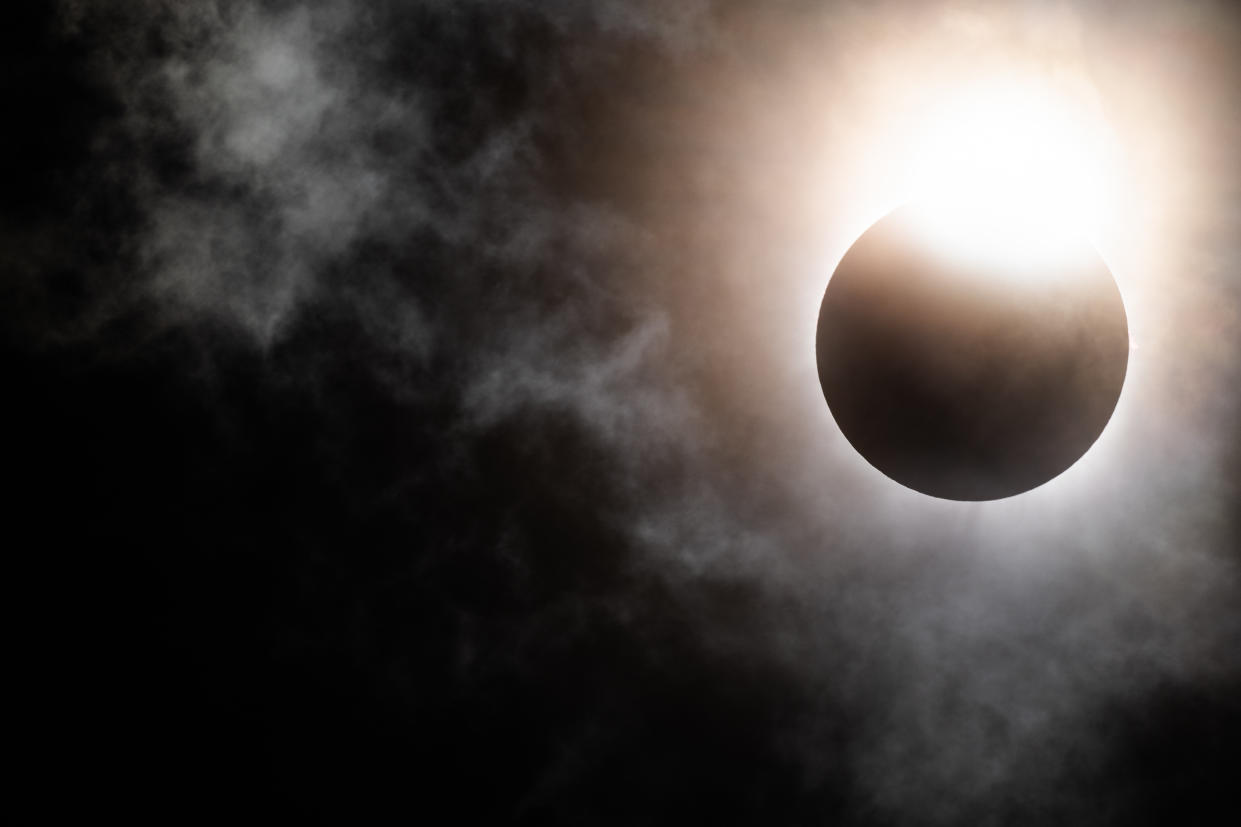
On April 8, 2024, a total solar eclipse drew its enormous shadow over North America, cutting a 115-mile-wide (185 kilometers), 10,000-mile-long (16,000 km) path of sudden darkness across the continent.
Starting in Mexico, the eclipse moved through 15 U.S. states before passing across Canada, and was visible to an estimated 44 million people. If you didn't catch the stunning spectacle in person, here are all of our favorite photos taken from eclipse watching parties throughout the Americas.
The first totality began in Mazatlán, Mexico, where onlookers saw the moon pass in front of the solar disk. Just before totality, viewers were treated to a thin diamond-like ring of sunlight shimmering through valleys on the moon's outer surface.
After the moon had completely blocked off the sun's face, all that could be seen were thin purple plumes in the corona caused by solar eruptions.
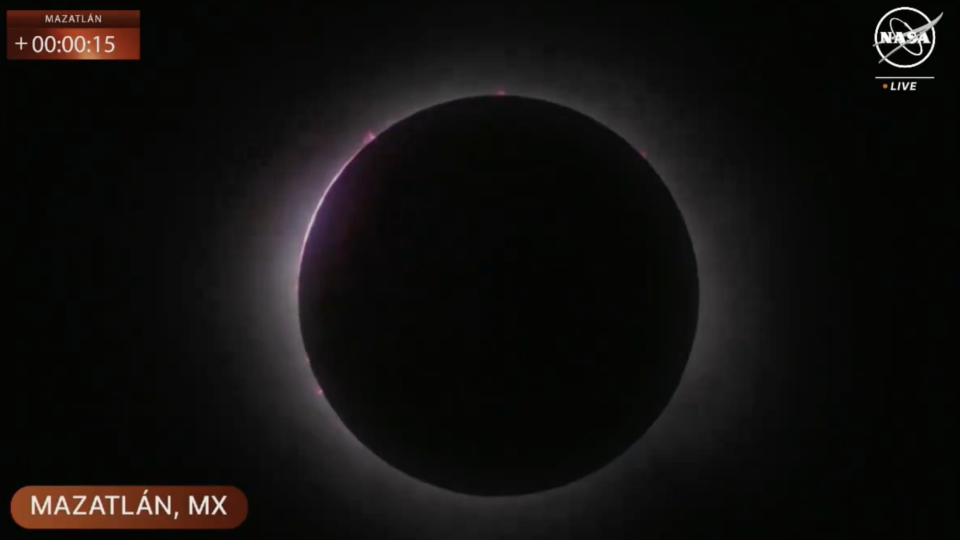
Meanwhile, the moon began to carve the sun into a toenail-thin sliver above Fort Worth, Texas.
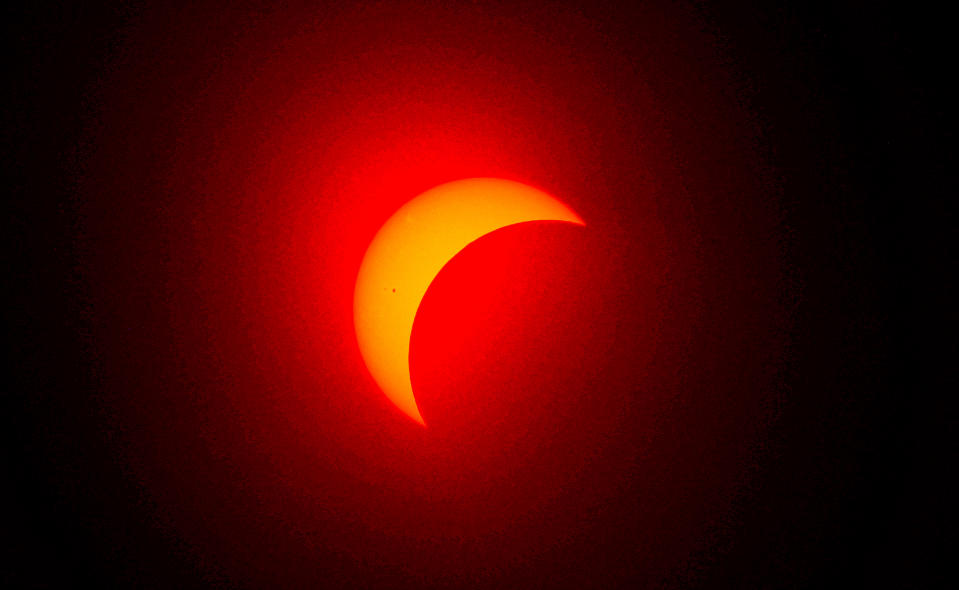
Then, just before totality, the diamond ring effect could be seen. As the final beads of sunlight zipped through the valleys on the moon's limb, the two bodies appeared in the sky as a ring studded with brilliant diamonds.
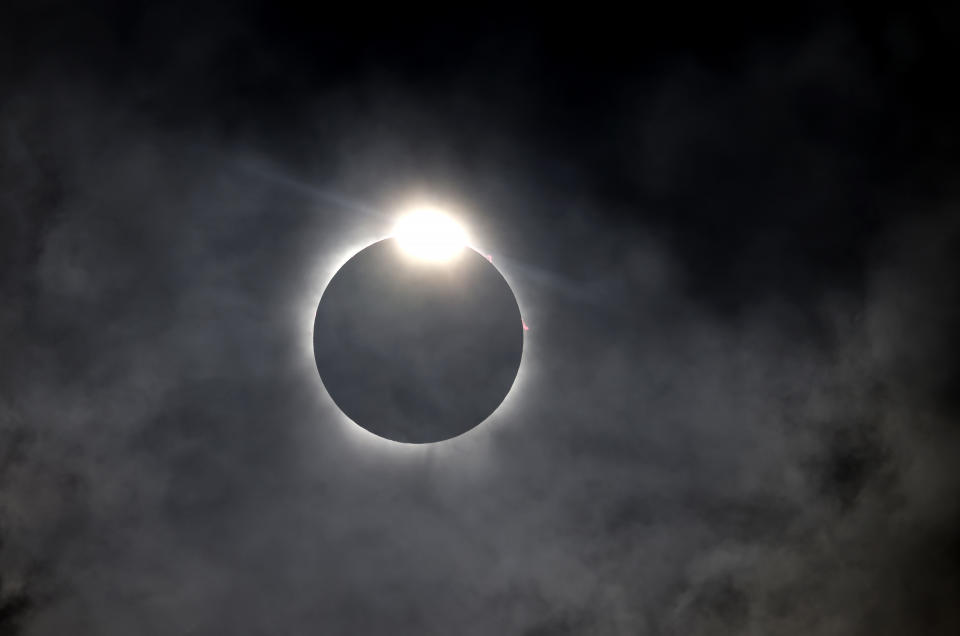
Later, in space, the European Space Agency's Geostationary Operational Environmental Satellite captured the shadow of the moon sweeping across North America.
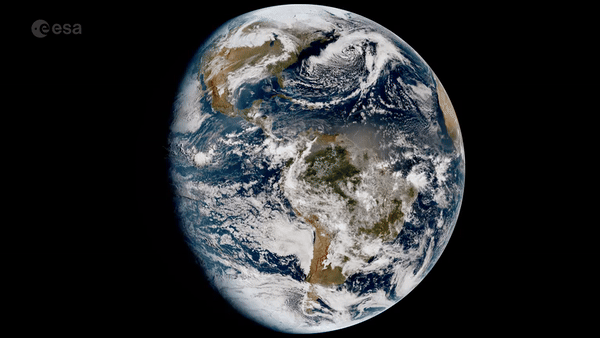
The eclipse passed over Cleveland, Ohio, where the Chicago White Sox and the Cleveland Guardians were just about to face off. Baseball fans and players alike flocked to the field to capture photos of the eclipse; this image shows a composite of the partial and total phases of the eclipse as seen from Progressive Field.

During totality, the sun's corona shone in the darkened sky, high above the stadium lights at Progressive Field in Cleveland, Ohio.
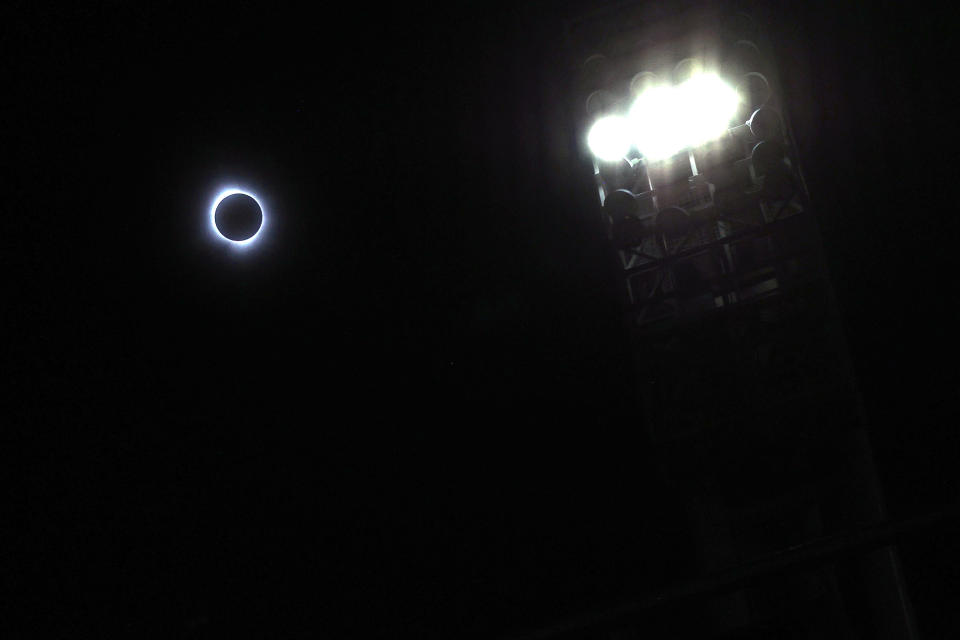
When the eclipse passed over Dallas, Texas, a NASA photographer caught the entire progression on camera. This composite image shows both partial phases of the eclipse on the left and right, with the corona visible during the moment of totality in the center.
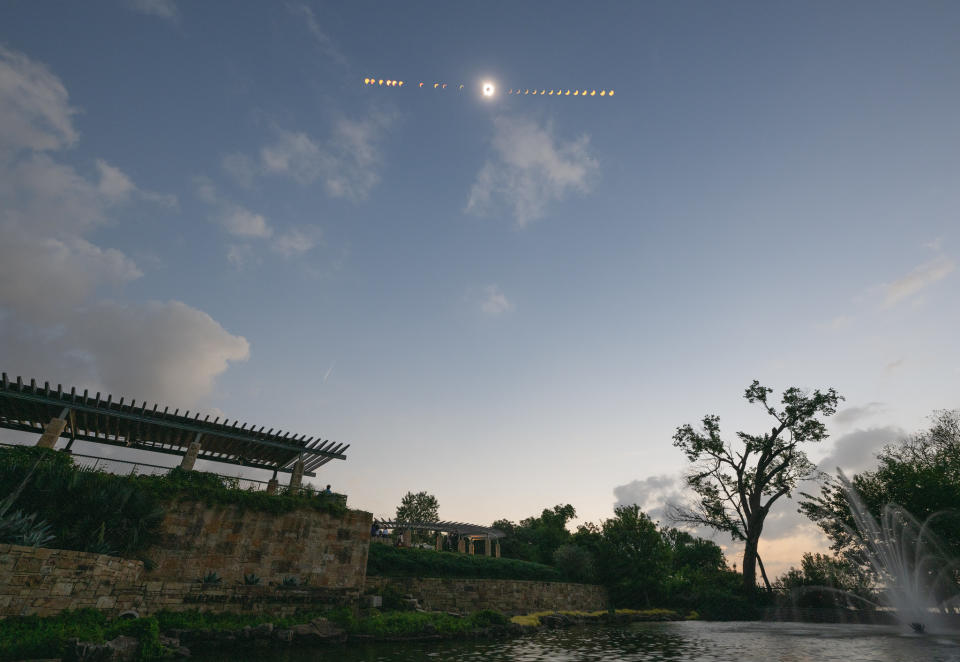
Solar prominences (enormous loops of plasma that tower over the sun's surface) were visible during totality to those with telescopes and telephoto cameras. Each prominence is many times taller than Earth.
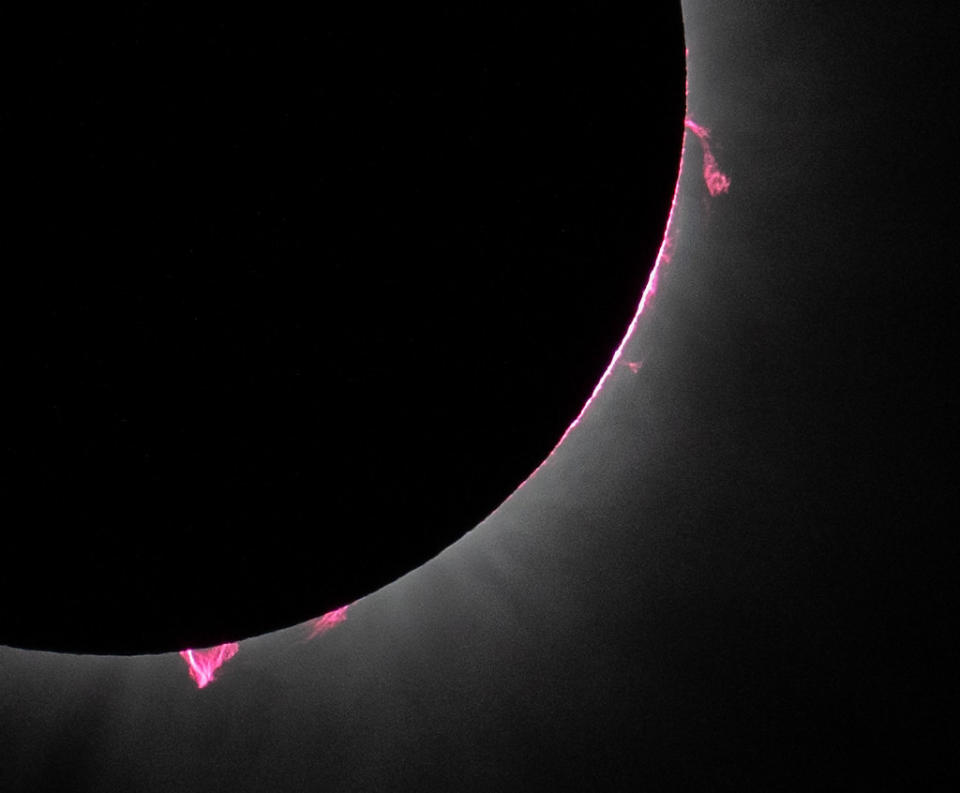
The partial phases of the eclipse were visible over the Washington Monument in Washington, D.C., as this composite NASA image shows.
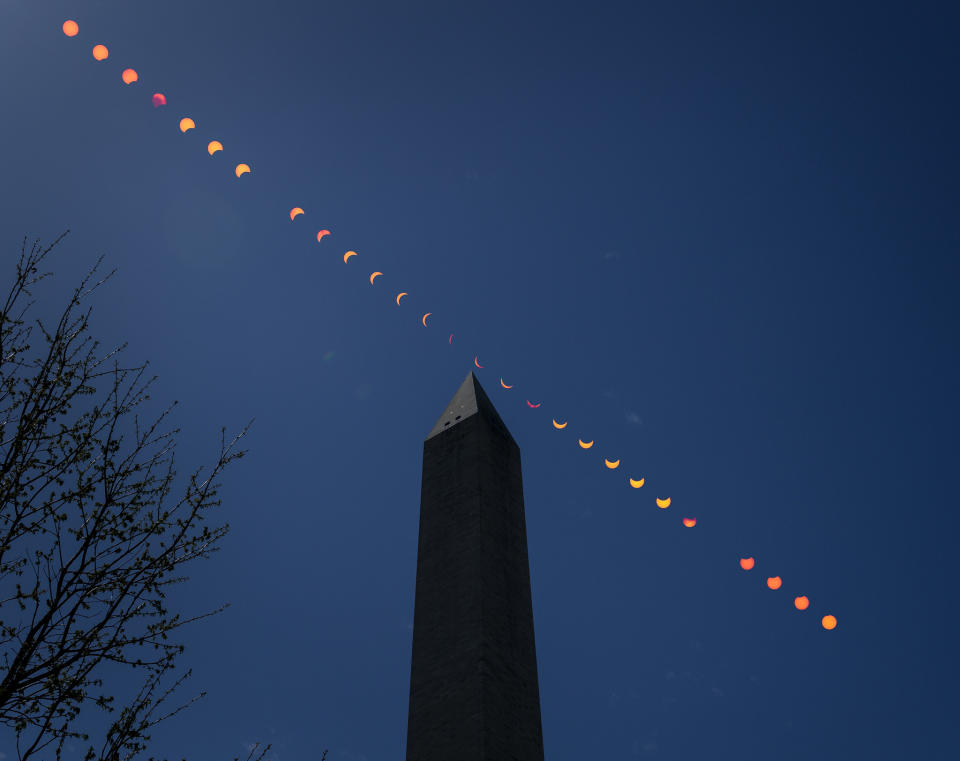
The final rays of the sun peeked over the mountians of the moon just seconds before totality began in Indianapolis, Indiana.
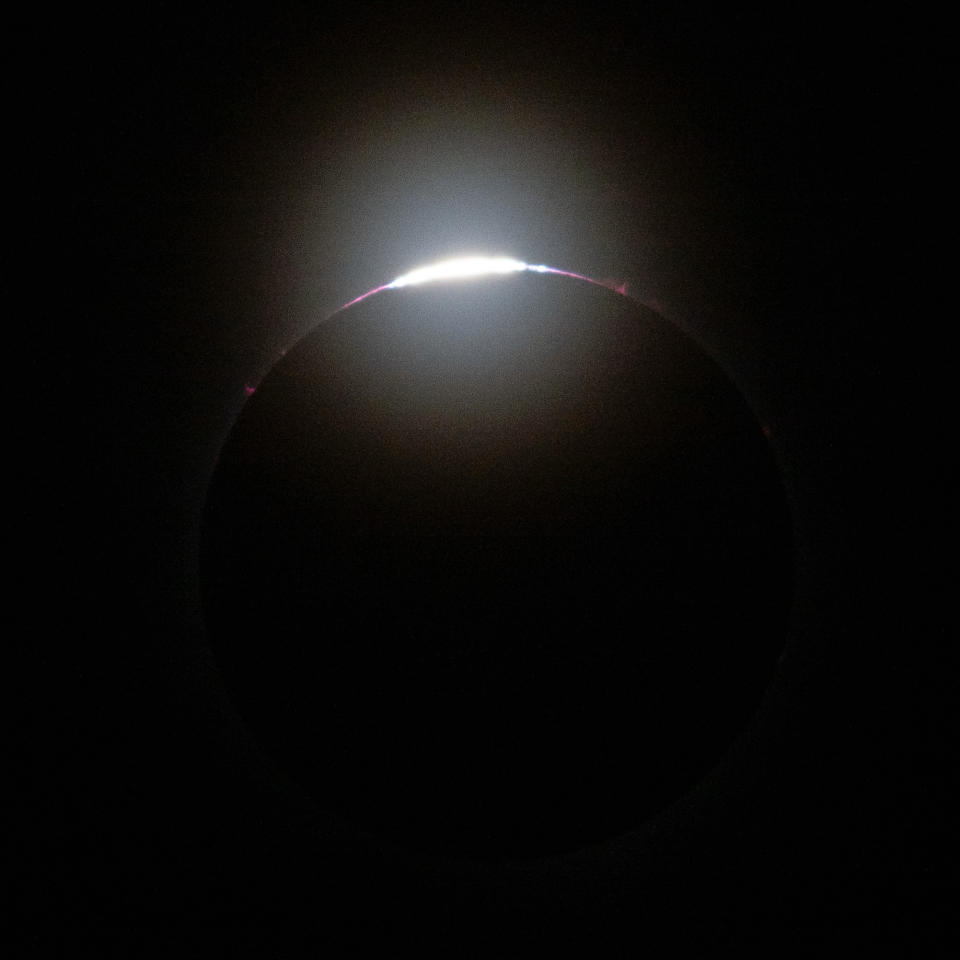
Clouds obscured much of the total phase of the eclipse at Niagara Falls, where millions of people flocked to both the U.S. an Canadian sides of the river to witness the spectacle. While the corona is obscured in this image, the horizon glows with the 360-degree sunset effect that's synonymous with totality.
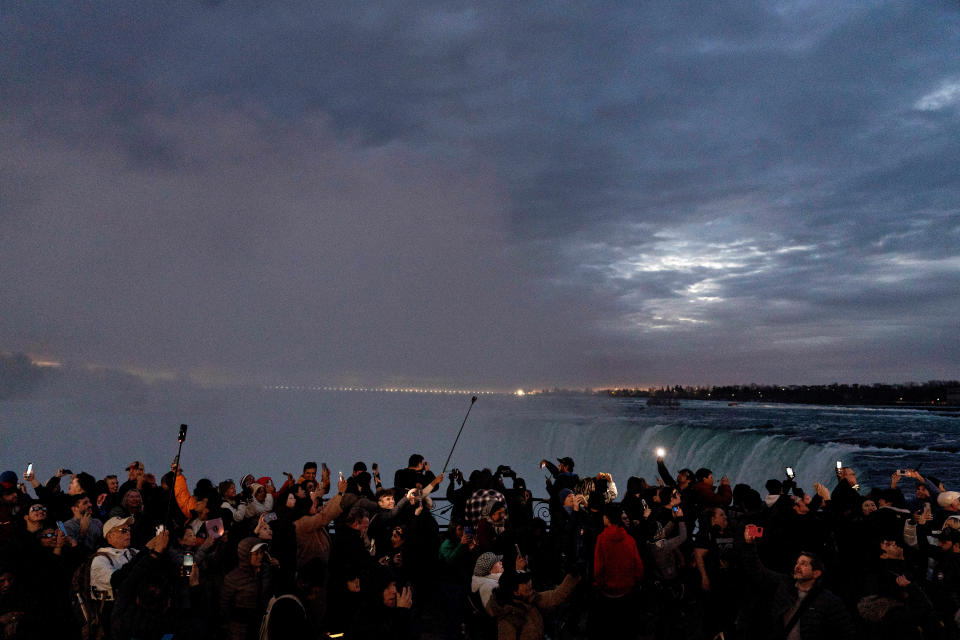
Not far away in Hamilton, Ontario, eclipse chasers flocked to the edge of Lake Ontario for a view of totality. Here, the partial phase of the eclipse begins above a haze of clouds, as seen through a pair of orange-tinted solar eclipse glasses.
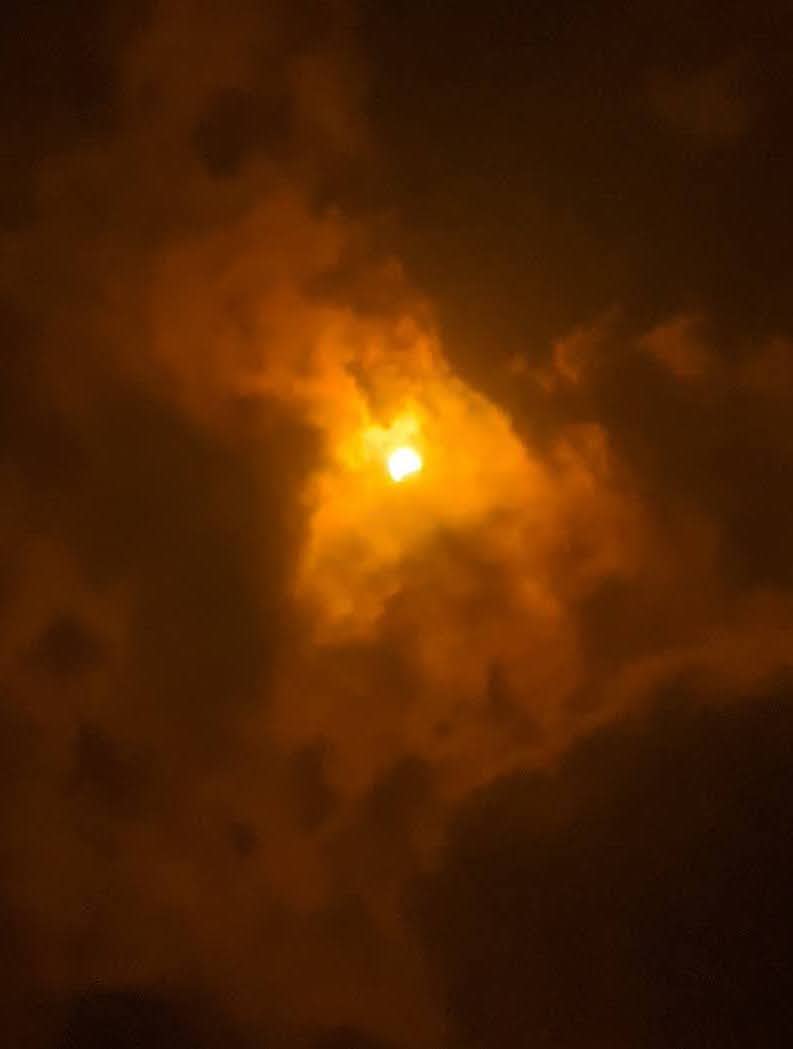
The sun's corona shines in the dark sky during totality over Glover, Vermont.
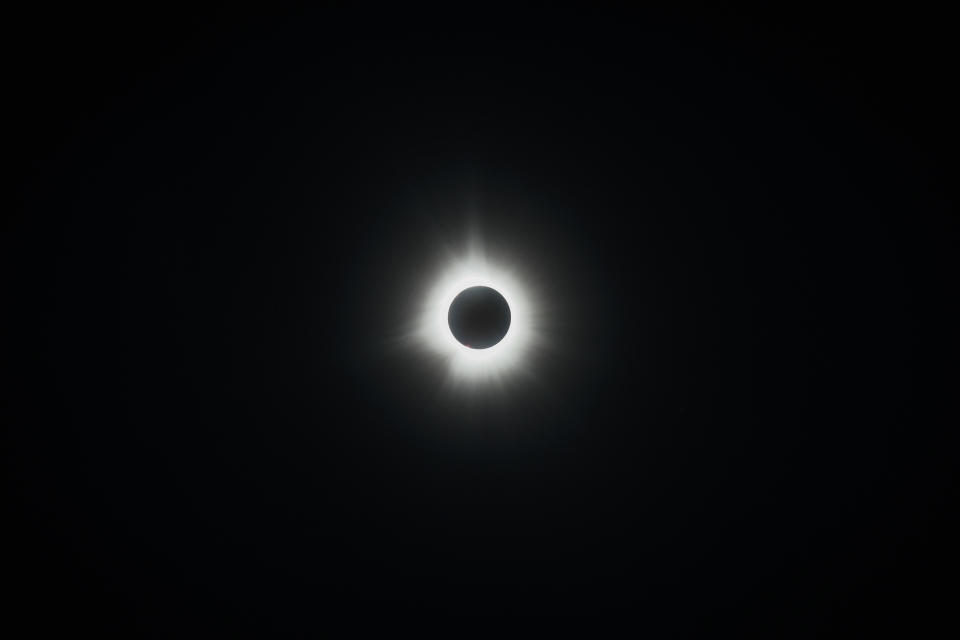
No less spectacular is Mizar the dog, who awaited the total solar eclipse at the Sacre Coeur de Beauvoir Sanctuary in Sherbrook, Canada.

The eclipse bathed the sky in ethereal light above Torreon, Mexico.
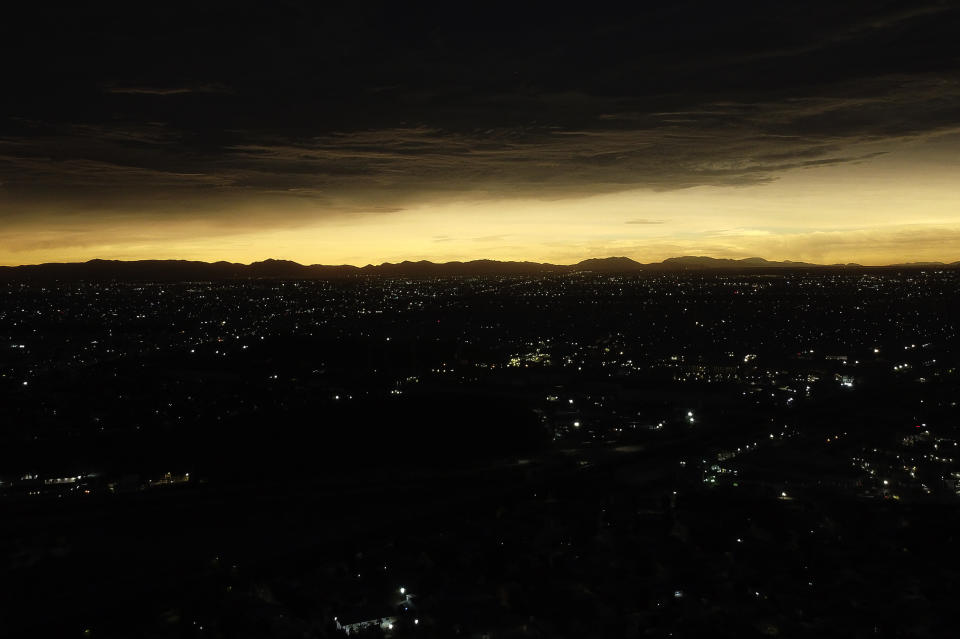
The moon descending upon the sun created the conditions for this moody photograph, taken through cloud cover, in Brady, Texas.

Only the slenderest hair of sunlight remains in this photo from Eagle Pass, Texas
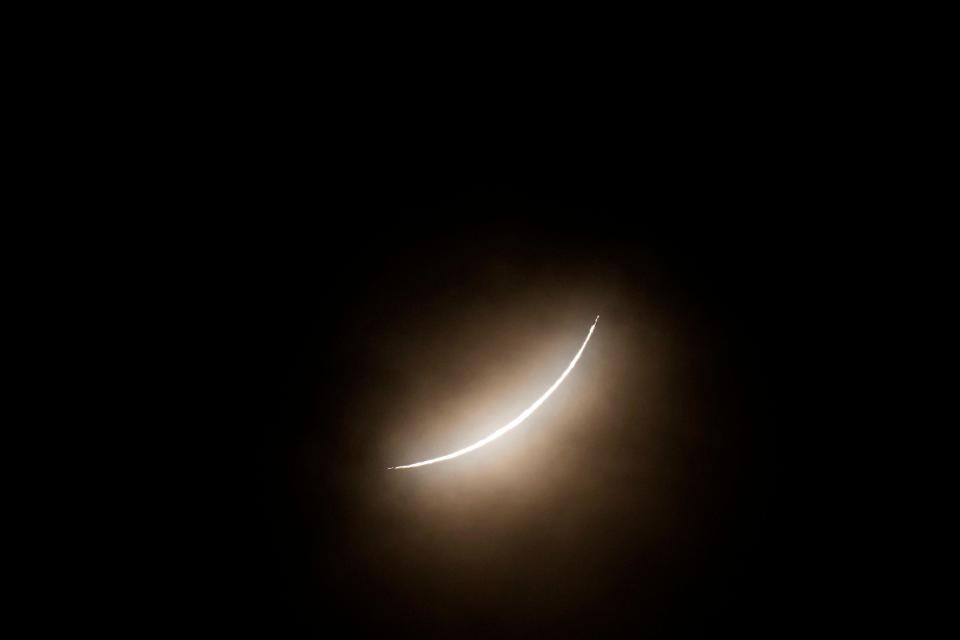
Under a blanket of clouds, the moon pockets the sun beneath the angel atop Princes' Gates in Toronto.
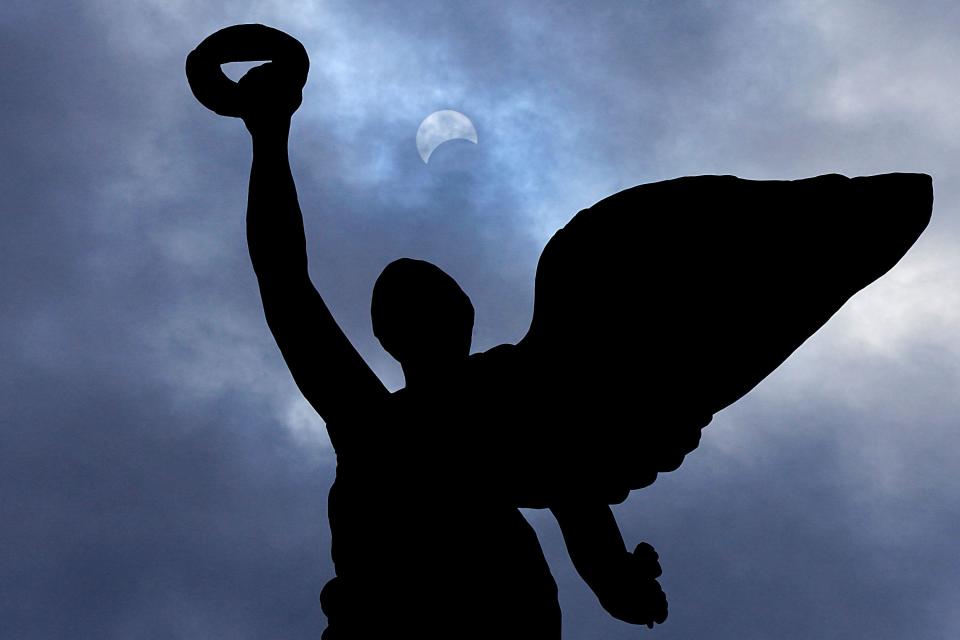
The partial solar eclipse seen through cloud cover at Niagara Falls, New York.
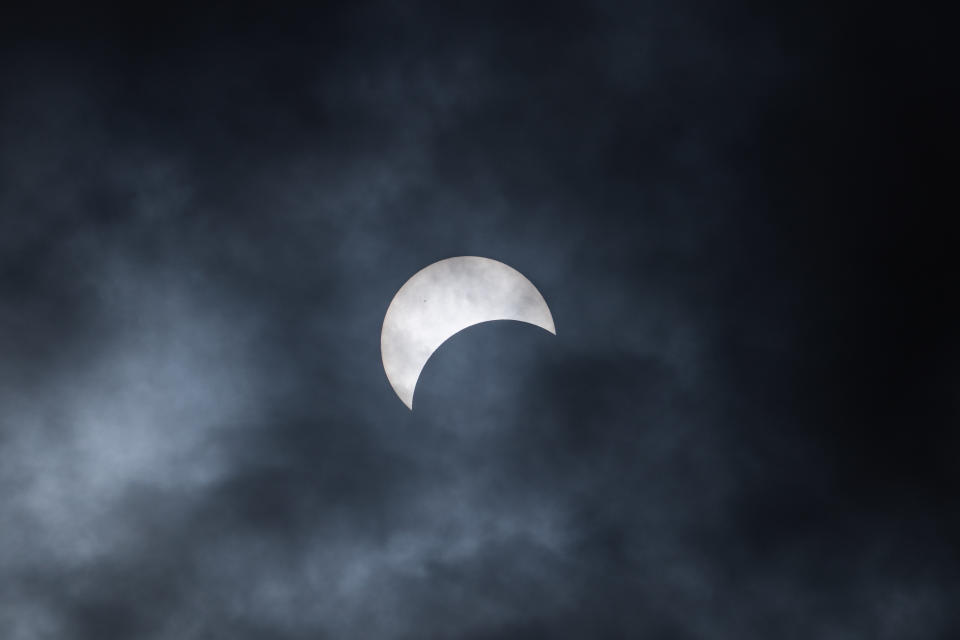
The moon passes in front of the sun behind the Washington Monument during the partial solar eclipse in Washington DC.
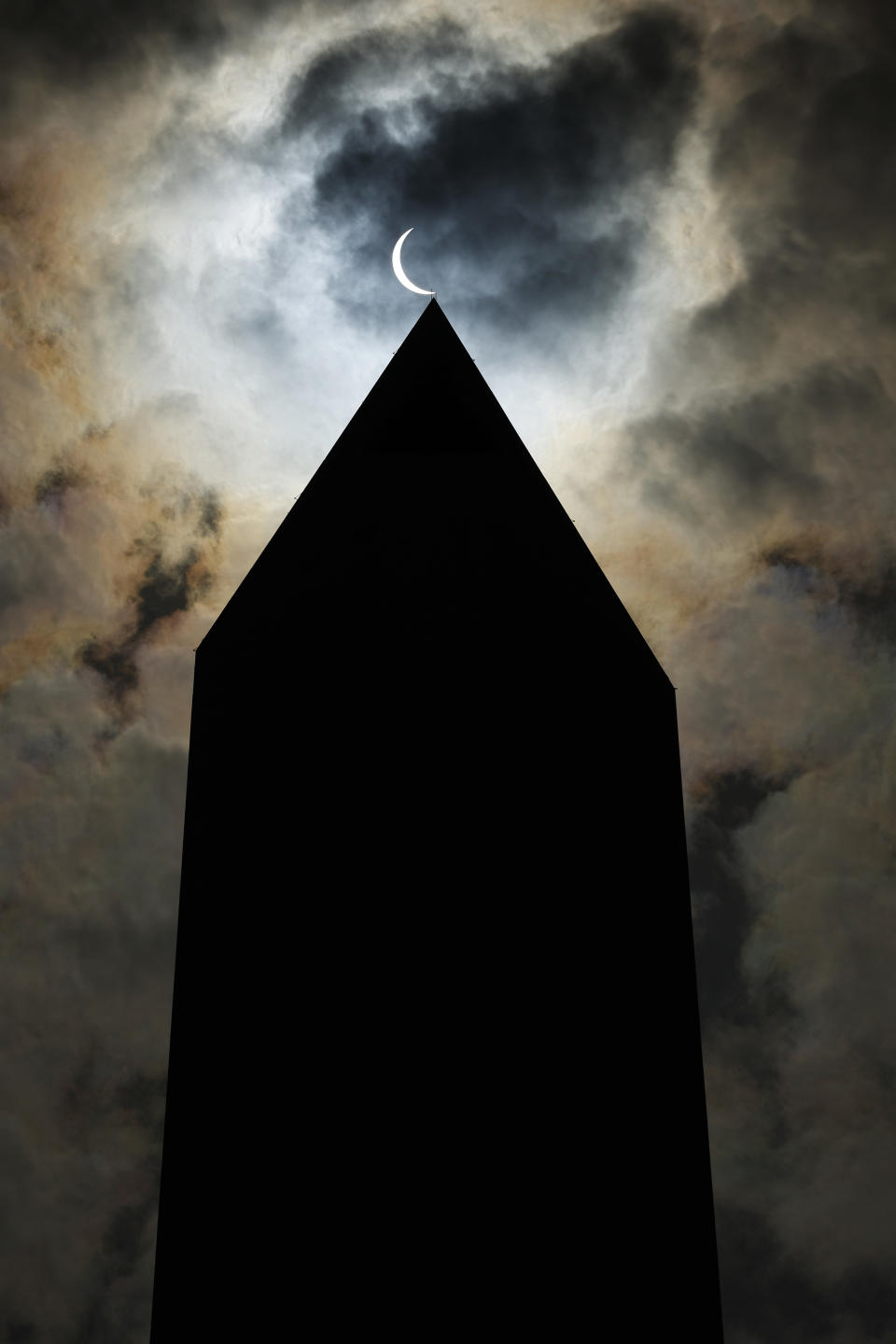
The partial solar eclipse stuns among billowing clouds atop the dome of the U.S Capitol Building on Capitol Hill in Washington DC.

The sun reaches totality in Houlton, Maine, before passing over New Brunswick, then Newfoundland and out into the Atlantic ocean.
